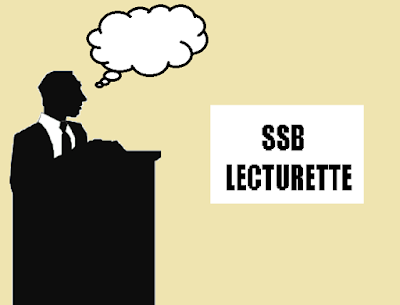Full form of AFSPA is Armed Forces Special Power Act.
It is a bill passed by both Lokhasabha and Rajyasabha and
duly signed by president on 11 September 1958. This has been mainly passed considering
increase in violence in northeastern region of the nation. Later it was implemented
in various other parts of the nation including Jammu and Kashmir.
Recently during Lokhasabha election(2019) congress party has
also made into news by mentioning revocation of AFSPA from all the parts
considering its misuse. Before discussing it lets understand some facts about
AFSPA by answering series of questions,
What is AFSPA?
AFSPA stands for Armed
Forces Special Power Act, implemented first ever time on 11 September 1958
at northeastern region of the country to suppress the growing violence. With the
implementation of this act in any state/part of state, army personals will get
some special power to tackle the disturbers/insurgents. Which include arrest of
suspicious personal without any warrant; shoot specific group or personal with prior
warning or searching suspicious vehicle etc.
So far its been implemented in various parts of North
eastern region, Punjab/chandighad region and Jammu and Kashmir. In other side
its also been one of the controversial acts due violation of human rights, some
even compare it with Rowlett act of British era.
When is AFSPA proclaimed?
Before proclamation of AFSPA at any region that particular state
or part of it has to be considered as “disturbed area”. This is done as per the
section (3 ) of AFSPA. The proclamation is generally done by ministry of home
affairs by seeking opinion of that particular state.
The causes of disturbance could be
misunderstanding between communal sections based on caste, religion, color or
social status. The increase in insurgency or radical/antinational groups
whichever is threat to national security could be cause of disturbance. In
general failure of internal administration or incapability of internal forces (police
force) to handle the instability causes disturbed status to be implemented and
hence AFSPA to be implemented to aid local police force.
If a area is declared once it security/part of administration
will be under control of armed forces at least for 3 months according to its
regulations.
What are the special powers given to forces?
Armed forces will get so many special powers and provision
against civil laws. Notable among them are enlisted below,
·
Any suspicious personal can be arrested without
any warrant provided arrestee should be produced to local security personal (police
station in general) as soon as possible.
·
Any private place/house/private premises can be
searched without any search warrant.
·
Force can prohibit or restrict gathering of 5 or
more than 5 people.
·
Armed forces will get a power to open fire at
anybody/any group if it is found suspicious provide force should warn beforehand.
·
If a person found cause of disturbance repeatedly
the army can force that person till death.
·
Any militant or insurgent found hiding at any
house, building or shelter army has got a power to blow it to neutralize such
elements.
·
If at all any vehicle found suspicious it can be
stopped at anywhere and anytime to search it.
·
If at all any armed force personal found committing
wrong action he/she is not liable for leagal action according to civil laws.
What are the places AFSPA has been implemented so far?
· Assam
and Manipur, 1958
It all originated because of naga
national councils rebellion at northeastern India and increase in violation because
of the same so to control that critical situation on 11 September 1958
the Armed Forces Special Powers (Assam and Manipur) Act, 1958 has been implemented at selected regions of
northeast India. The act is still intact at few places of Assam, Meghalaya and Arunachal
Pradesh. It is expected to revoke soon after applied period without any extension.
· Punjab
and Chandigarh, 1983
Due to similar causes The
Armed Forces (Punjab and Chandigarh) Special Powers Act has been proclaimed
on 15 October 1983 and it has been withdrawn in 1997 approximately after 14
years of its proclamation.
·
Jammu and Kashmir, 1990
Considering increase in
insurgency in Jammu Kashmir region and to control the same The Armed Forces
(Jammu and Kashmir) Special Powers Act has been proclaimed in September 1990
and it is still untouched. This is most controversial implementation of
AFSPA so far.
Why is it criticized?
AFSPA has been mainly criticized on human right violation and scope misuse
of it. There are so many legal suits against army personals on human right violation,
fake encounters and even rape. Several commissions of UN raised questions about
AFSPA and On 31 March 2012 it also asked India to terminate the law.
Many of politicians also have forced to terminate AFSPA including P.
Chidambaram and Saifuddin Soz. There are
politicians and groups of other pole too who are constantly supporting it.
There have been considerable protests held against it. I am sure you must
be heard name of Irom Sharmila and her hunger strikes against AFSPA
implementation.
Should it be totally removed?
You must have heard recently during Lokhasabha election (2019) congress
party has also made into news by mentioning revocation of AFSPA from all the
parts considering its misuse.
If we see into criticality of situation at disturbed areas and incapability
of internal forces (police) it is a necessity to deploy Armed forces. If deploy
our mighty forces then there should be less of restriction to operate
efficiently. So If there are two laws to be followed (civil legality and its own
uniform laws) before attacking against radical elements isn’t it an extra
hurdle imposed on our Armed brothers?
Think over it and give your thoughts in the comment section below.










No comments:
Post a Comment